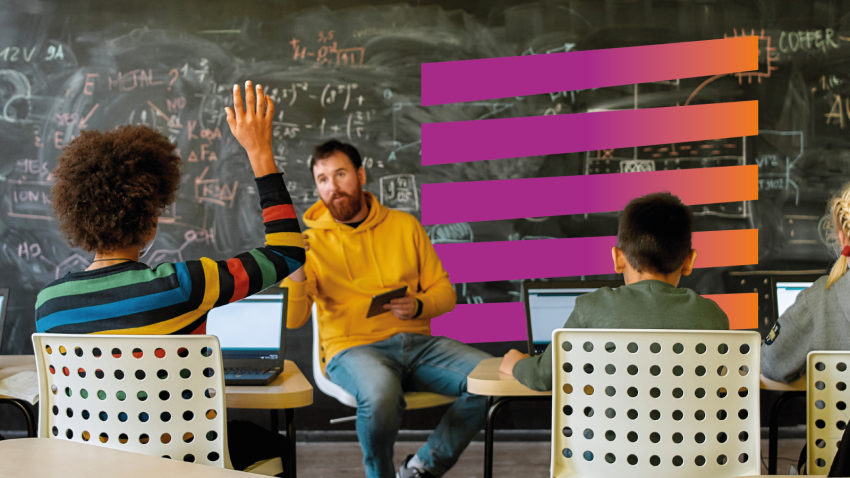They form the foundation for individuals to become independent, better informed and prepared, engaged and active citizens.
This contributes to safeguarding our democracy and fundamental values, in a context of rising political polarisation, eroded trust in institutions and increasing information manipulation.
What are basic skills?
- Literacy: the ability to understand, use, evaluate, reflect orally and in writing, using visual, audio and digital materials across disciplines and contexts.
- Mathematics: the capacity to reason mathematically and to formulate, use and interpret mathematics to solve problems in real-world situations and make well-founded judgements and decisions based on data.
- Science: the ability to engage with science-related issues and ideas as a reflective individual. This requires skills such as explaining phenomena scientifically, evaluating and designing scientific enquiries, and interpreting data and evidence.
- Digital: the confident, critical and responsible engagement with digital technologies for learning, working and participating in society. This includes information literacy, communication, media literacy, digital content creation, online safety and digital well-being.
- Citizenship: the ability to act responsibly and participate fully in civic life, grounded in an understanding of social, economic, legal and political structures. This involves understanding and evaluation of civic concepts, institutions and processes, including democracy, media and crisis preparedness.
Basic skills are the foundations of key competences for lifelong learning.
Where do we stand?
According to several international surveys (see policy documents below), many EU countries are seeing a decrease in levels of basic skills among pupils.
About one in three 15-year-olds struggles to understand and apply mathematics in real-life situations and learning environments.
One in four 15-year-olds fails to understand basic texts or apply simple scientific knowledge.
Compared to Canada, Japan, the United Kingdom and the US, the EU has a lower top performance rate in reading and science, and the second lowest in mathematics. This may seriously threaten the EU’s innovation capacity and long-term competitiveness.
43% of 13-14-year-olds underachieve in basic digital skills, and most EU countries show a decline or no improvement compared to previous years. In global comparison, the EU lags well behind the best-performing Asian economies.
In the last years, civic knowledge among 13-14-year-olds has also declined in several EU countries.
Action Plan on Basic Skills
The 2025 Union of Skills is the European Commission’s strategy to address the skills and labour gaps across the EU.
The strategy includes an Action Plan on Basic Skills that sets out short- to medium-term steps for the EU and EU countries to improve basic reading, mathematics, science, digital and citizenship skills and promote excellence, from early years through all stages of school education and in adult learning.
The Action Plan on Basic Skills aims to:
- boost basic skills teaching and learning
- support educators
- enable supportive environments
Funding opportunities
Activities of the Action on Basic Skills will receive funding from:
- Erasmus+
- European Solidarity Corps
- Recovery and Resilience Fund
- European Social Fund+
Publications
Policy background
The Action Plan on Basic Skills builds on several existing Council recommendations:





